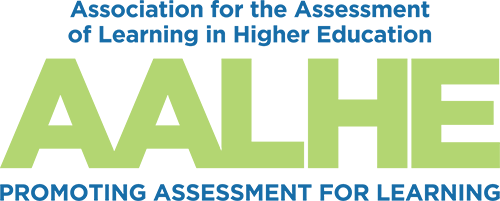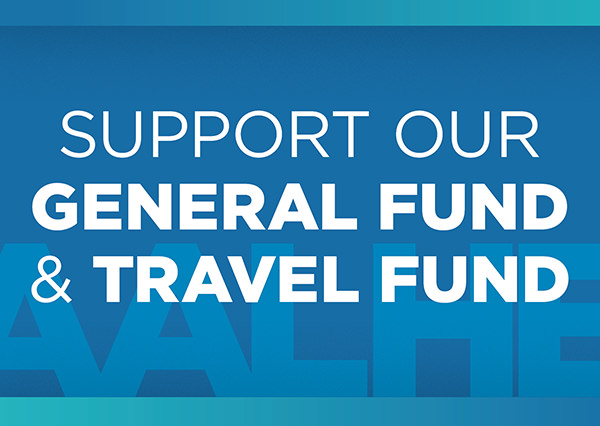- Home
- About AALHE
- Board of Directors
- Committees
- Guiding Documents
- Legal Information
- Organizational Chart
- Our Institutional Partners
- Membership Benefits
- Member Spotlight
- Contact Us
- Member Home
- Symposium
- Annual Conference
- Resources
- Publications
- Donate
EMERGING DIALOGUES IN ASSESSMENTOutcome as Interpretation: Institutional Commitments in Practice (and Process)
October 8, 2025
AbstractA Pratt education—dedicated to art, design, architecture, information, and the liberal arts and sciences—complicates conventional assessment as learning is inseparable from how work is produced, iterated, and situated. When success cannot be gauged solely by demonstrable skills, what do functioning assessable institutional learning outcomes look like? In 2024, a working group of eight faculty and staff from across the schools convened to address this question in order to compose Institute Student Learning Outcomes that could translate and live alongside the Institute Goals.
IntroductionCreative institutions differ not only in their programs, course materials, and assignments but in their focus on problem-solving grounded in making, making that ranges across—and intertwines—various processes and approaches. Typically, this happens through pedagogies that integrate collaboration, experimentation, dialogue, and making alongside others, combined with faculty and peer feedback directed at continuous improvement of the making and maker. Creative practices combine process, iteration, and translation; these entail continuous negotiation between context, concepts, and execution. Critical making, or “interwoven material and conceptual work” (Ratto, 2011), requires attention to how processes are taught, socially embedded, and enacted. Students think divergently, fail and return from failure, ask questions, and ask again, in their interwoven thinking and making. Core reflective practice keeps students analyzing choices, articulating intentions, and adapting approaches. Success resists standardization and stasis; it cannot be captured through a set demonstration of skills, as skills manifest differently, depending on the individual, inquiry, and iterative step. Situated knowledge drives innovation and understanding. These tenets appear in Pratt Institute’s mission, a guidepost in the development of Institute Learning Goals and, subsequently, Outcomes. ContextIn 2019, Pratt Institute convened a working group composed of eleven faculty and staff to draft Institute Learning Goals. Over the next eighteen months, the group collaborated with one another as well as the larger community through existing structures such as Academic Senate meetings and open online comment platforms. Working collaboratively can open up opportunities and environments where academics, students, and partners can express themselves and discover their true identities (Abegglen et al., 2023). In Spring 2021, Pratt officially adopted seven Institute Learning Goals: Justice, Environmental Sustainability, Global Citizenship, Resilience, Creative Problem Solving, Versatile Communication, and Disciplinary Fluency. These goals articulate in broad terms the substance and skills that students can expect to gain through the totality of learning opportunities available at Pratt, including academic programs, internships, co-curricular experiences, and international and civic engagements. These Institute-wide goals complement but are distinct from those of the General Education program, cultivated only at the undergraduate level. These goals were published on Pratt’s communications platforms and in its materials, shared with new faculty and students at orientation, and continue to be used to inspire and steer program and curriculum development. The initial framework for the goals, as well as the Fourteenth Edition of the Standards for Accreditation with the Middle States Commission on Higher Education, call on the Institute to measure achievement of these goals through student learning outcomes. Stitt-Bergh, Wehlburg, Rhodes, and Jankowski (2019) assert that a focus on demonstrating the value of a program often results in more frequent student learning assessments; yet these assessments are often shaped by bureaucratic procedures designed to satisfy external requirements, rather than being closely connected to actual teaching and learning. In contrast, Pratt faculty and staff engaged in a translation of Institute Learning Goals into Outcomes that can sit alongside the Goals to guide the community across its range of disciplines, programs, and activities. In 2024, the Institute convened another working group, this time of eight faculty and staff from across the schools. In its efforts to remain true to the role and spirit of both the goals and outcomes, this group prioritized a focus on language that honored the exploratory and often nonlinear nature of creative practice while being mindful of the requirements of grounded, meaningful assessment. Outcomes needed to be both aspirational and operational. ProcessThe Pratt Learning Outcomes working group met several times over the summer of 2024 to compose seven outcomes that would work in concert with the seven goals. In the following September, these draft outcomes were presented for discussion at a workshop attended by assessment coordinators from every academic department, as well as others engaged in assessment facilitation. Following this event, the draft outcomes were shared with the Academic Senate and again opened for comment by the full community. In spring 2025, the working group reconvened to review the collected feedback and revise the draft outcomes, working in pairs on each outcome to produce a revision, accompanied by a summary of the feedback and a rationale for the changes made. As the final step in the process, these revised outcomes were sent to the Institute Curriculum Committee for review before being shared with the broader community on the Institute’s website, alongside its goals. MethodologyThe group began its work with a question: how do the existing goals manifest in the learning that happens at Pratt? What do they—or can they—look like in practice? According to Curcio (2018), assessment, especially outcomes assessment, encourages us to apply the same level of curiosity, innovation, and critical thinking to our teaching as we do to our academic research. And so, more questions arose: what kinds of experiences invite students to act in relation to these goals? And how might those actions be made legible to assessment, as evidence of learning, but learning defined as engagement, awareness, process, and transformation? The group also considered how the absence of such outcomes might appear or be interpreted. In reflecting on the goals—developed only five years prior—transformation over time of language as well as values became apparent. Values are not fixed principles, but generative positions that require context, whether of creative practice or community. This meant moving away from declarative statements ("students value...") toward thinking about how students encounter, negotiate, and practice those values over time. It also meant resisting qualification of those outcomes that highlighted performance (“effectively”). The outcomes became about being able to demonstrate knowing how and what to do. Rather than identifying measurable behaviors through products, the conversation focused on finding evidence of where these goals were present—whether critique sessions, collaborative projects, research framing, or material choices. This better enabled the group to draw the outcomes from existing practice and, in turn, more tightly connect outcomes and goals. This repositioned focus made evident the push and pull between the broad strokes of an institutional goal and the refined focus of disciplinary practice that often turns to skill development. Instead, attention turned to what becomes possible for a student who has internalized a goal, such as the capacity to navigate power structures or failure, or to integrate modes of communication to pursue questions. These capacities reveal themselves through shifts in attention, decision-making, or iteration, rather than only through outputs. What is demonstrable varies according to context and intention; goals form through practice and process. In each outcome, emphasis shifted from value judgment to cultivating conditions for students to act in relation to a value (see Appendix). ConclusionFollowing Still’s (2018) definition of scope as the level targeted by learning enhancement efforts, "institutional” outcomes address the learning experience at a global level. Thus, developing institutional learning outcomes demands collective interpretation. It involves choices—and awareness of the values and premises upon which those choices are made. What interpretations of a value or premise are foregrounded and what forms of evidence align with or challenge these? It is a balancing act, demanding attention to accessibility, clarity, and durability, while not diluting, distorting, or displacing the community values articulated in its goals. ReferencesAbegglen, S., Burns, T., & Sinfield, S. (Eds.). (2023). Collaboration in higher education: A new ecology of practice. Bloomsbury Academic. Buckley, J. B., & Michel, J. O. (2020). An Examination of Higher Education Institutional Level Learning Outcomes Related to Sustainability. Innovative Higher Education, 45(3), 201–217. https://doi.org/10.1007/s10755-019-09493-7. Curcio, A. A. (2018). A Simple Low-Cost Institutional Learning-Outcomes Assessment Process. Journal of Legal Education, 67(2), 489–530. Ratto, M. (2011). Critical Making. In B. van Abel, R. Klaassen, L. Evers, & P. Troxler (Eds.), Open Design Now: Why Design Cannot Remain Exclusive. BIS Publishers. Stitt-Bergh, M., Kinzie, J., & Fulcher, K. (2018). Refining an Approach to Assessment for Learning Improvement. Research & Practice in Assessment, 13, 27–33. Stitt-Bergh, M., Wehlburg, C. M., Rhodes, T., & Jankowski, N. (2019a). Assessment for Student Learning and the Public Good. Change: The Magazine of Higher Learning, 51(2), 43–46. Suskie, L. A. (2009). Assessing student learning: A common sense guide (2nd ed.). Jossey-Bass. AppendixPratt Institute Learning Outcomes Reconsiderations (Spring 2025)
Pratt Institute Learning Outcomes (Adopted 2025) Pratt students can demonstrate the knowledge and ability to
Pratt Institute Learning Goals (Adopted 2021) 1. Justice: Guided by a framework of shared values and responsibility for cultivating a diverse, equitable, and just society, Pratt students make decisions with consideration of their impact upon individuals, communities, and the earth. They are compelled into action to resist all forms of discrimination, inequalities, and supremacism, in order to promote just societal transformation with frameworks and tools that allow for reflection and agency. 2. Environmental Sustainability: Pratt students are equipped to act on the urgent need to reduce the negative impact of human activity on the health and stability of the Earth’s climate, of the air, water, soils, and organisms that comprise its ecosystems, and of human communities. Students weigh decisions, actions, and messages of their creative work against consequences on resources across local and global contexts. With knowledge and appreciation of interconnections among economic, environmental, and social factors, students champion and enact positive transformations toward sustainable ecologies. 3. Global Citizenship: Pratt students understand that individuals and societies around the globe are at once plural and inter-connected. Students are equipped with the knowledge and practical skills to engage respectfully and ethically with individuals and cultures, participate in civil society, and practice social as well as environmental responsibility, thereby contributing to the greater good both locally and globally. 4. Resilience: Pratt students’ educational experience instills a sense of strength and fortitude, empowering them to face present and future obstacles. Students learn about the connectivity between and among themselves, their classmates and instructors, their families and their community. As Pratt students become proficient in their core disciplines, they also develop the ability to balance being centered and focused with the creative powers of adaptability, flexibility, and acceptance of constructive criticism. These life skills teach them to value self-care and give them the courage to tackle social, professional, ethical, and environmental challenges that they will encounter. 5. Creative Problem Solving: Creative problem solving is dialogic, co-creative, and iterative as students pose questions, identify problems and opportunities, and design transformative strategies. Through critical, resourceful, and reflective processes, students consider diverse perspectives to make informed decisions. Students envision, implement, and reassess meaningful solutions that are grounded in humanistic concerns related to society and the environment. 6. Versatile Communication: Pratt students are skilled communicators who understand how different forms of media can work together, and they use an array of media to reach diverse audiences. In order to create possibilities for progressive change, they employ their communication skills to critique signifying systems that further inequality, oppression, and discrimination. 7. Disciplinary Fluency: Pratt students are skilled in using the tools, techniques, and technologies of their chosen discipline. They learn the histories and values of their field and apply their skills purposefully with respect to relevant professional benchmarks, norms, and guidelines. They gain the historical and cultural knowledge to act as ethical leaders in their field and beyond. |


